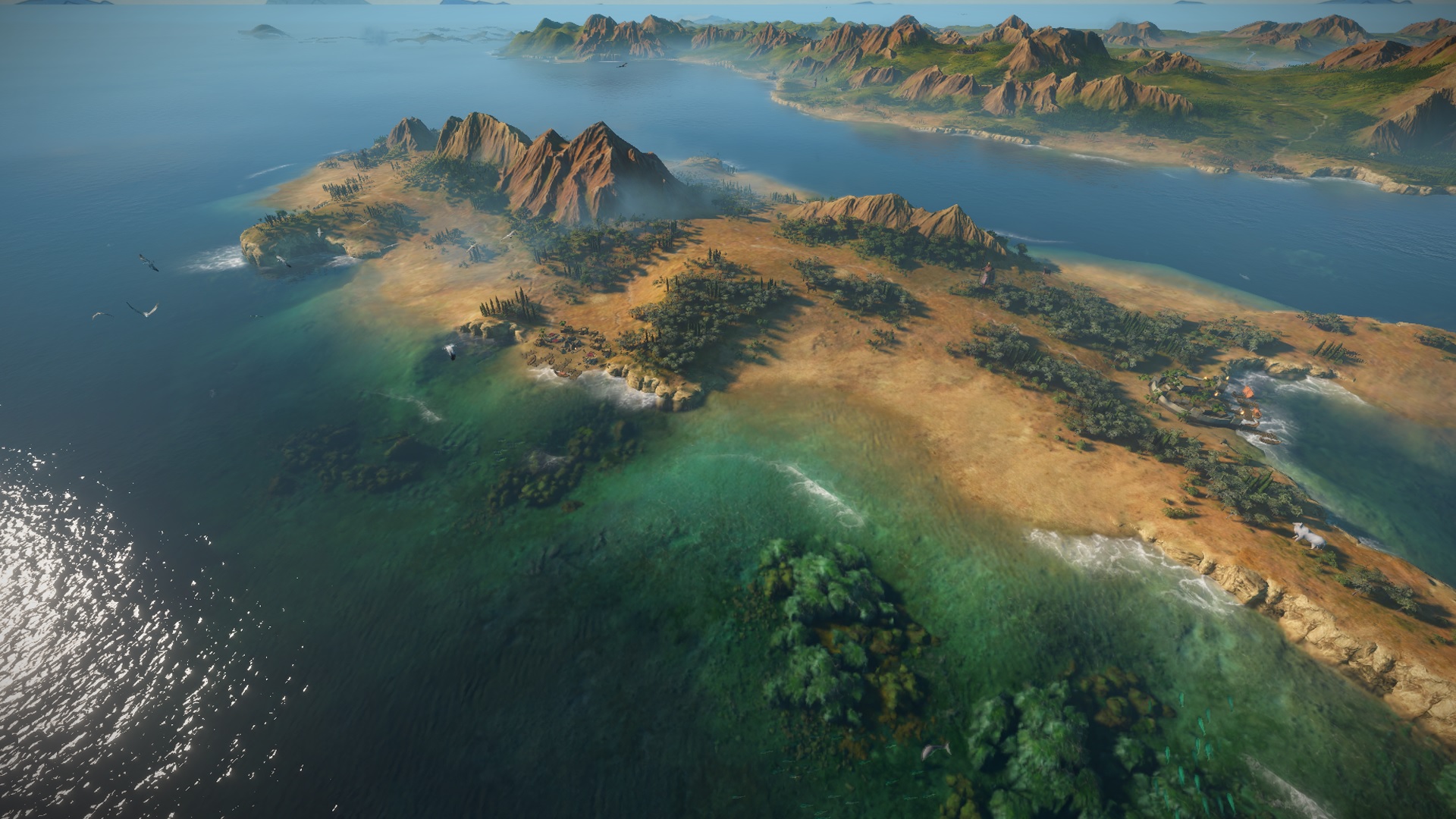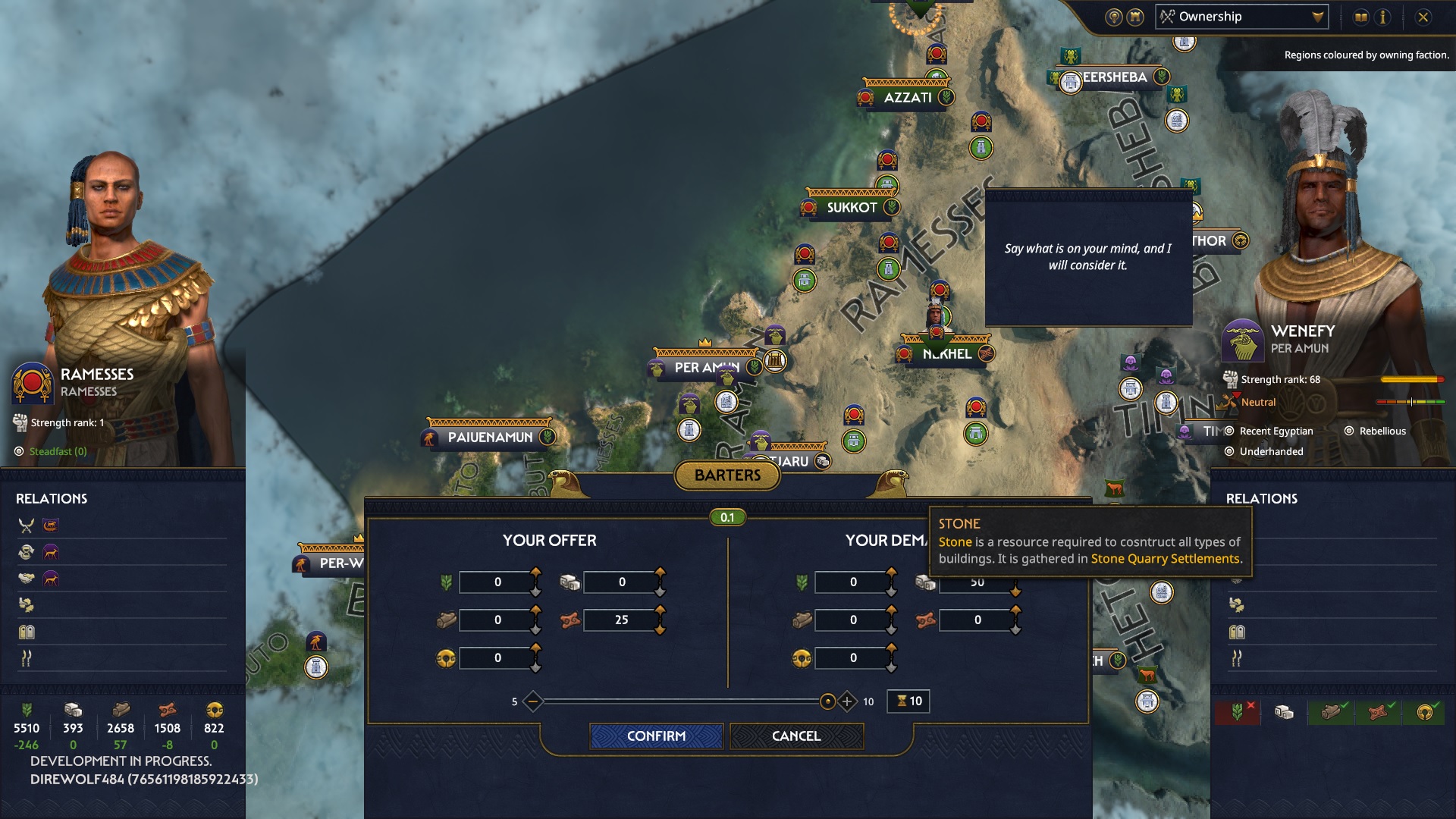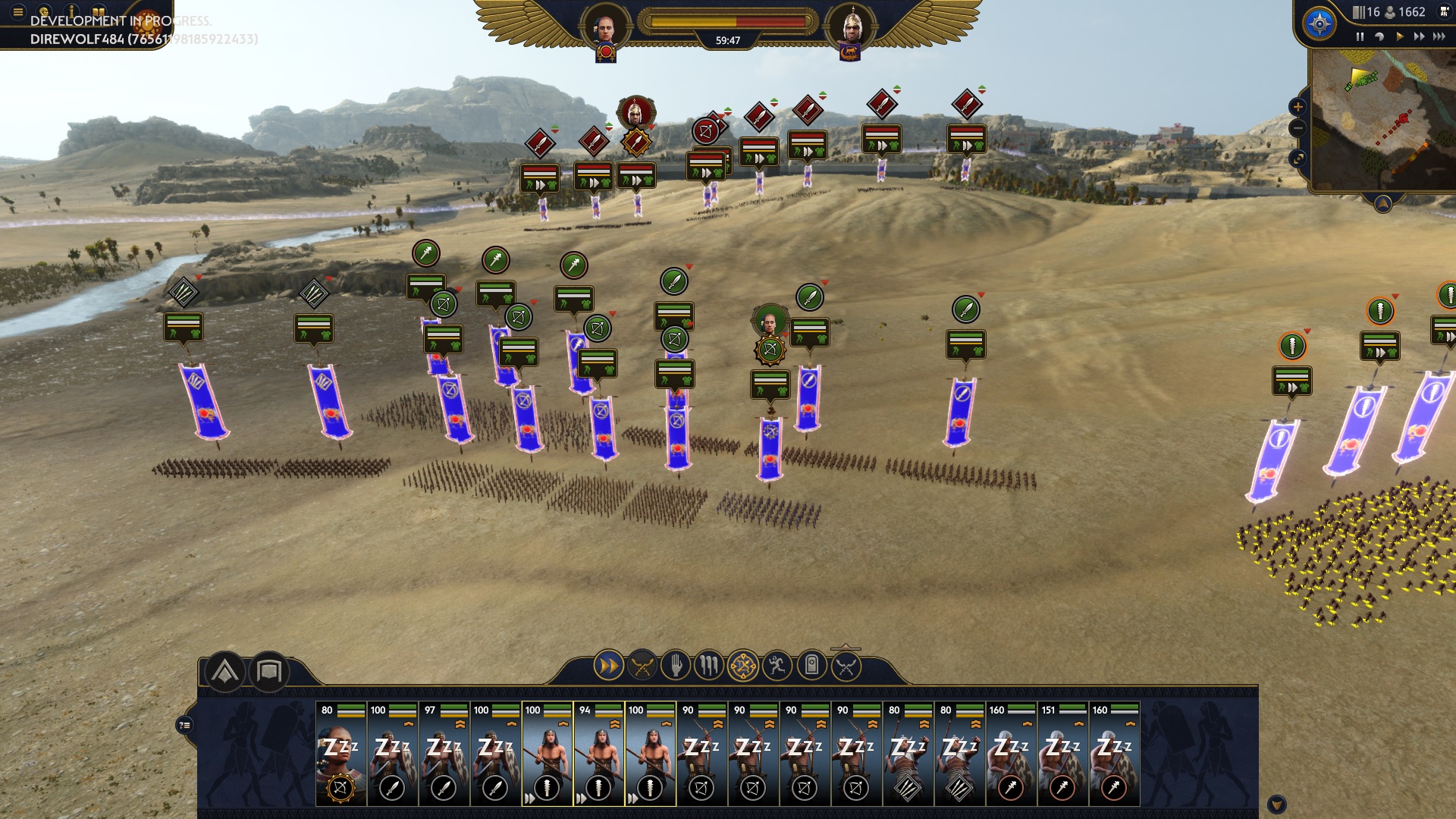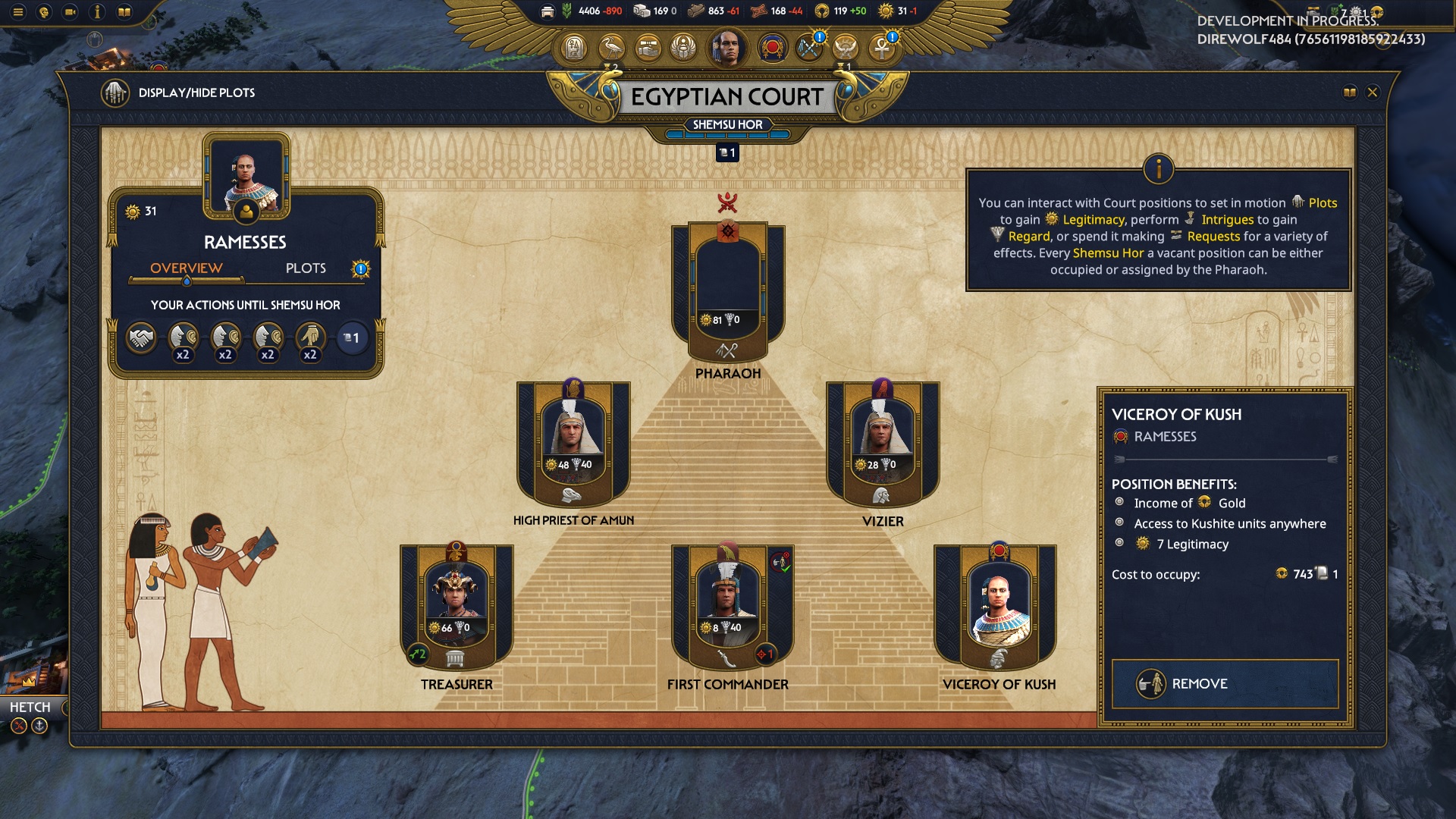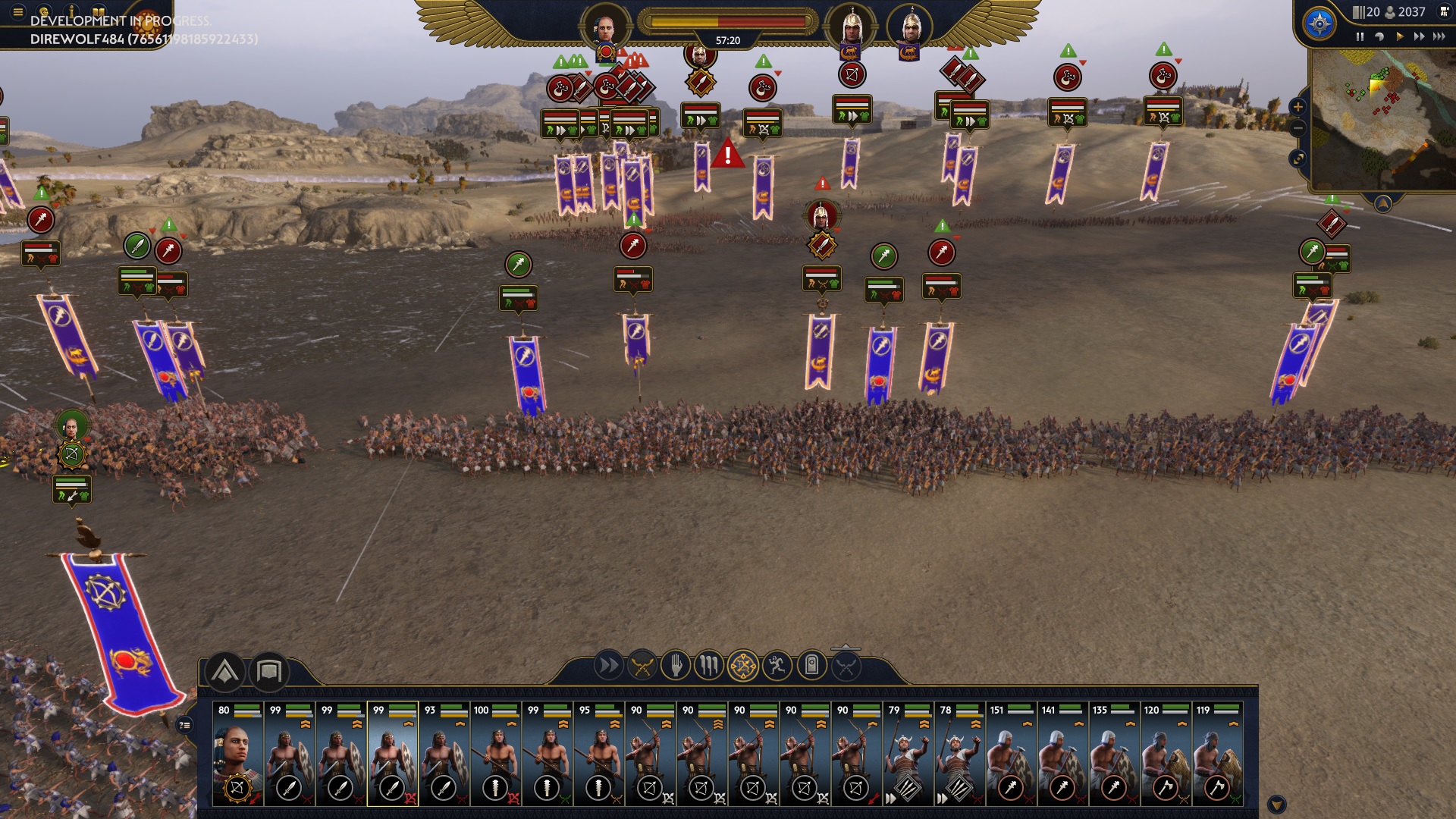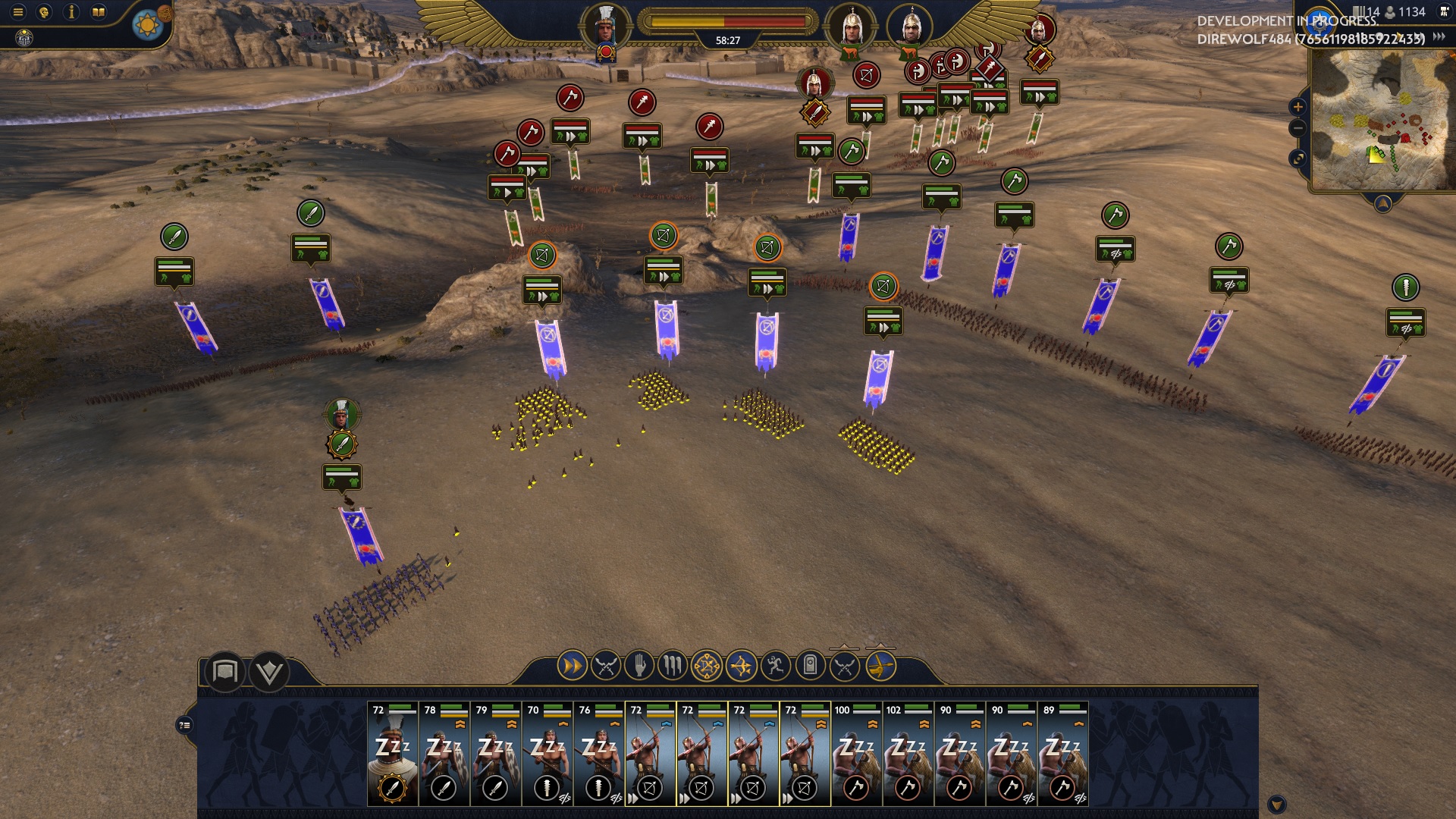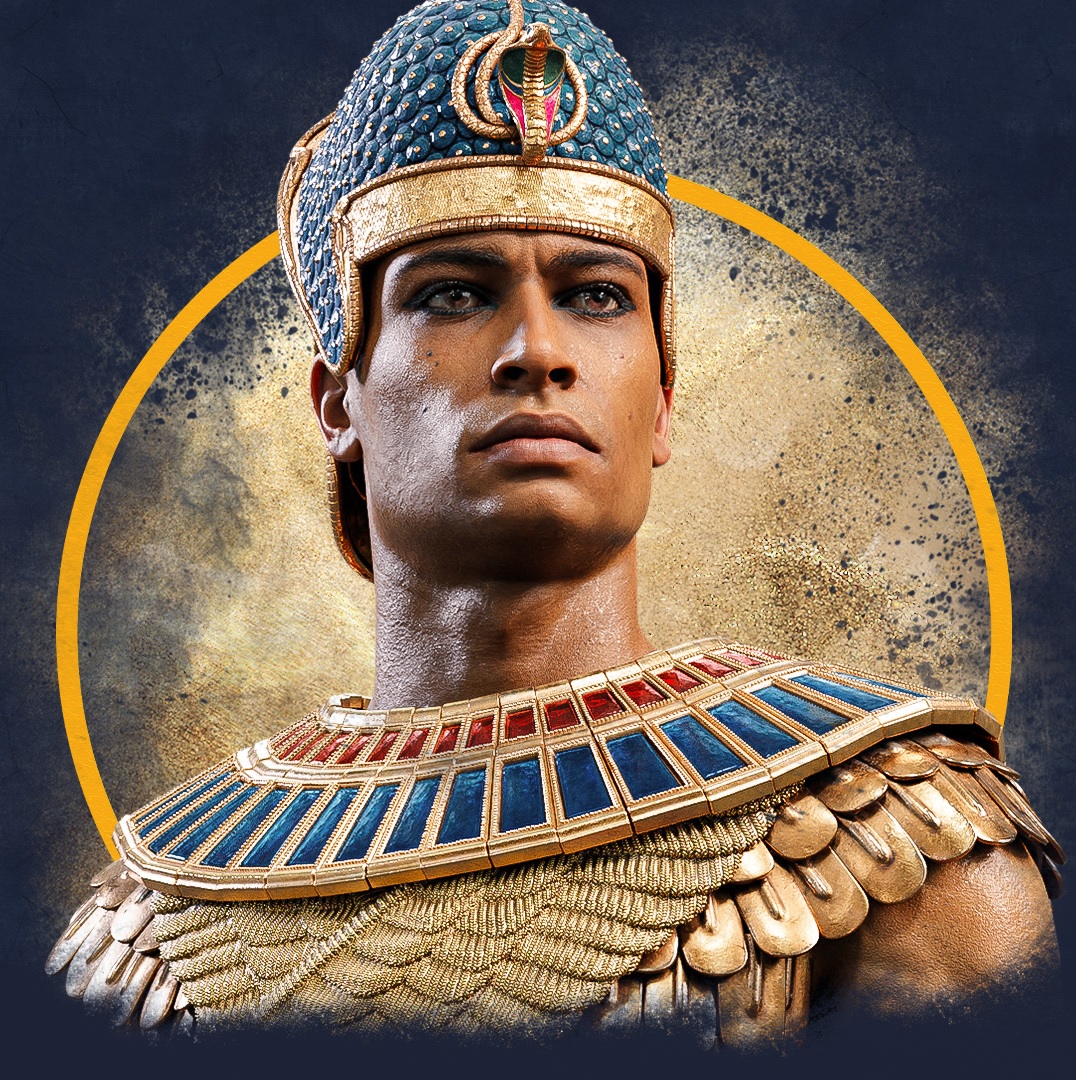Total War: Pharaoh preview — Clashing swords and courting disaster
A number of changes suit this sword-and-sandal strategy title, but some things still need fixing.
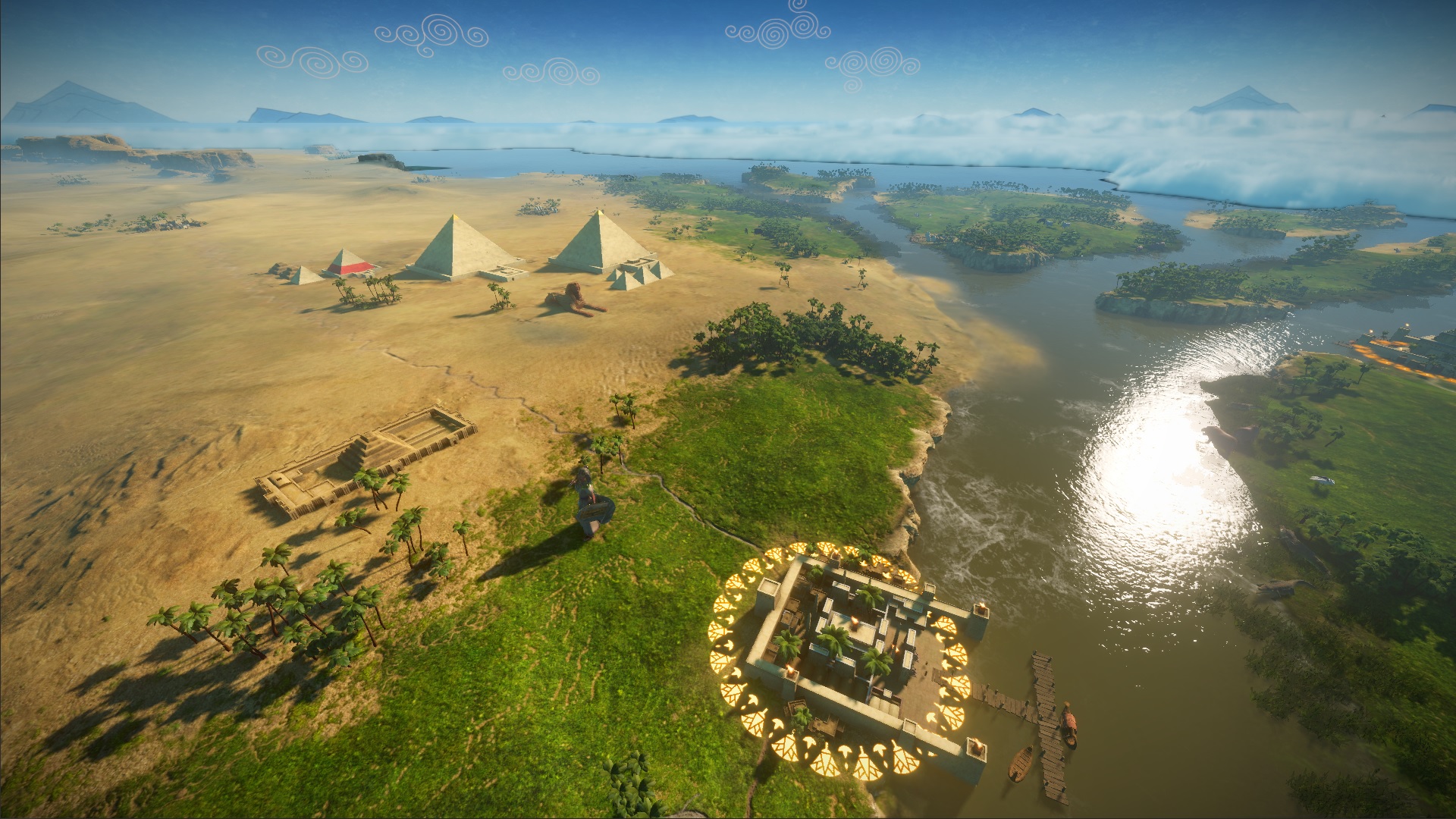
The sands of time come for all, but maybe you can stave off the collapse.
That's the pitch behind Total War: Pharaoh, the next mainline strategy game from developer Creative Assembly and publisher Sega. I recently had the chance to play up through the first 50 turns of a campaign with Ramesses as a leader. This large chunk of gameplay provided a fun, in-depth look at how the changes to battles and new mechanics on the campaign map are all coming together. There's a lot to love in this epic about the crash of civilization, as well as a fair bit that needs more work.
In addition to playing this chunk of the game, I also spoke with Teodor Kozhukov, principal designer at Creative Assembly Sofia, about some of the decisions the team made — and this game is shaking up the established formula.
Ancient escapism and war entwined
The choice of setting for Total War: Pharaoh is intriguing. Total War is no stranger to ancient history, but the Bronze Age collapse during 12th Century BCE is completely new. I asked Kozhukov about how the team went about building a game in this setting.
"We started with historical records, we had historical consultants on our side advising us along the way, we had regular meetings with them," he says. "There's this one book, Red Land, Black Land [by Barbara Meitz] that we took a lot of inspiration from."
The end of the Bronze Age marked a tumultuous time in history, with famine and drought alongside invasions from mysterious groups known as the Sea Peoples, about which little is recorded. Kozhukov mentions that it was a challenge at times to balance historical fact (or lack thereof) with elements that make for good game design, as even in recorded history, many civilizations like the Egyptians would dramatically embellish their accomplishments.
Balance your slates carefully
When I went hands-on with some battles in Total War: Pharaoh earlier this year, I mentioned liking what I played, but that it was hard to form a full opinion without the context of the campaign map and what a playthrough actually looks like, at least early on. With this preview, I was able to see how trade and diplomacy play out in the end of Bronze Age Levant, with some neat upgrades centered around how resources work.
All the latest news, reviews, and guides for Windows and Xbox diehards.
While past Total War games adopted a singular primary currency — some factions in the fantasy-oriented Warhammer titles do have secondary and tertiary resources — Total War: Pharaoh eschews the idea of just managing your money. In addition to gold, you'll spend stone, wood, and food across your territories. It adds another important layer to your treaties, as well as your plans for conquest. Do you expend forces chasing an enemy army when more unprotected lands are nearby that have the gold you desperately need?
Exchanges don't have to take place all at once, and you not only can but are encouraged to make long-term trades, with resources changing hands every turn. More than once, I found myself dangerously low on food, and was able to get by through daring trades where I agreed to exchange a certain amount of wood per turn to a nearby acquaintance. I didn't have much wood, but I had a steady supply of it, and my neighbor needed it even more than I did, so they were willing to pay exorbitant amounts of food per turn for just a bit of wood.
Choosing where to expand also helps determine what gods and goddesses you can find. While you'll have a couple of gods unlocked just based on who you're playing as, there's nothing stopping an Egyptian faction led by Ramesses from worshipping Hittite and Canaanite gods. Combined with the ability to recruit units native to a region regardless of what faction you are, and you're encouraged to play around with a culture's identity in a number of ways.
Kozhukov points out that as a game designer, it was easy to find "defined" roles for Egyptian gods and goddesses, and that choosing which ones would make it in felt like a "parent picking their favorite child." The Egyptians have more gods than the Hittites and the Canaanites, simply because there are so many gods in Egyptian mythology.
All of this culminates in the Ancient Legacy mechanic, where players choose whether they aim to become the next great Pharaoh, or instead assume the throne of the Hittite King. While my play session didn't go far enough to see me claim one of these goals, I'm interested in seeing how it plays out, as well as the danger that might be on the horizon.
Court of intrigue
Another compelling feature of the grand strategy in Total War: Pharaoh is the court system. Egyptian politics were complicated, a fact that plays into the danger being faced as time goes on.
"The Bronze Age collapse happened because the very, very long-chained machines that were these empires got broken somewhere in the middle," Kozhukov says, noting that court is meant to empower the player, but also add a new layer of danger.
As you progress the game, you can vie for control of a particular position in the court, such as that of Vizier. You earn political influence by aiding and gossiping with others in the court, and you can spend this political influence through requesting favors like specialized warriors, or even enact plots of blackmail and assassination. After I made Ramesses Viceroy of Kush, I gained access to special Kushite troops and a steady income of Gold, which altered my strategy to conquer Canaanite lands.
"While you're not in it, you're not targeted by it. As soon as you jump in, you see power, but power sees you."
Teodor Kozhukov
It took most of my playtime with this preview to wrap my head around exactly how the court worked, but towards the end, I appreciated the opportunities it provided, even if the danger it also held didn't quite play out in the first 50 turns of the game. Kozhukov notes that getting this system to feel balanced wasn't easy, and that the team wanted players to feel the weight of politics without making it seem like you were filing your taxes.
"It was very tricky balancing when we let the player do it, how easy it is, how difficult can things get, will the other factions at some point gang up on the player, there's a lot of pitfalls we tried to avoid," he says, adding that "I think we got it into a good place where the player will feel [like they are] stepping into a busy system, and as soon as the player steps inside, the world sees them."
"While you're not in it, you're not targeted by it. As soon as you jump in, you see power, but power sees you."
Breaking armor and morale
Much like in the previous battles I played out, combat here doesn't open with troops immediately dying in combat. Instead, things are slow, and there's a great deal of attrition. Battles feel like neither side is winning until a unit's armor is broken, at which point troops will quickly be routed. According to Kozhukov, this is an intentional design choice.
"We wanted to give limited control to the player," he says, adding that by slowing down the early stages of a battle, players have more time to react and think when faced with changing weather conditions, such as a dry heat causing exhaustion or the rain turning the ground into mud.
These weather mechanics are "honest chaos," and are meant reinforce the idea that no plan survives first contact with the enemy, pushing players to adapt. Multiple times throughout my preview sessions, I was able to defeat a numerically superior enemy through the terrain, using mud to slow down heavier troops into choke points where arrows could deal more concentrated damage.
This dynamic in turn allows the new armor system to function as a "prelude" to the real fight, while also leaning into the idea that armor really could break on a battlefield, instead of always functioning perfectly without any issues.
Battles are also where the game definitely still needs more polish. There was nothing game-breaking, but I frequently found myself unable to check the stats on a unit card, making it hard to see which enemy troops still had armor and which didn't.
Not long to go
When I asked Kozhukov what he found most exciting on a personal level, he points to the Ancient Legacy and campaign customization mechanics. For the former, players feel like they have a personal grand goal to build towards that they can still experiment with.
On the latter, players can fine-tune various elements of the game, from small things like recruitment slots all the way to randomizing faction start positions, something that isn't encouraged for first-time players but is a terrific way for veterans to find a challenge.
He notes that it's all about "letting the player play their way," adding that "it's our most sandbox-y game, fitting for a game full of sand."
After several hours of playing time with this early build of Total War: Pharaoh, I find myself wanting to go back and play it again. I'm much more interested in this sword-and-sandal epic than I was before, and I really want to see how all the systems come together, even if some things still need a bit more polish.
Total War: Pharaoh is currently scheduled to arrive on Oct. 11, 2023 on Windows PC via Steam and the Epic Game Store.

Samuel Tolbert is a freelance writer covering gaming news, previews, reviews, interviews and different aspects of the gaming industry, specifically focusing on Xbox and PC gaming on Windows Central. You can find him on Bluesky @samueltolbert.bsky.social.
